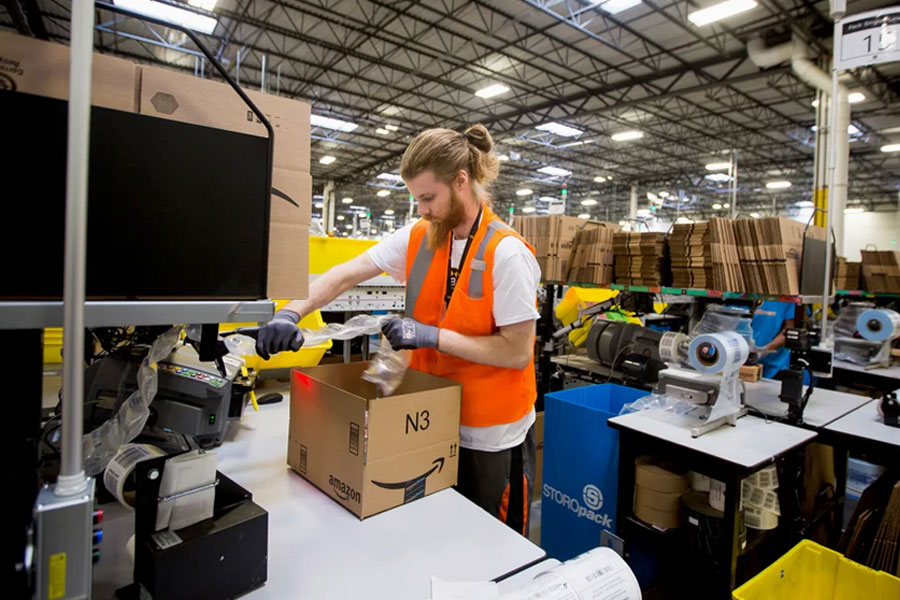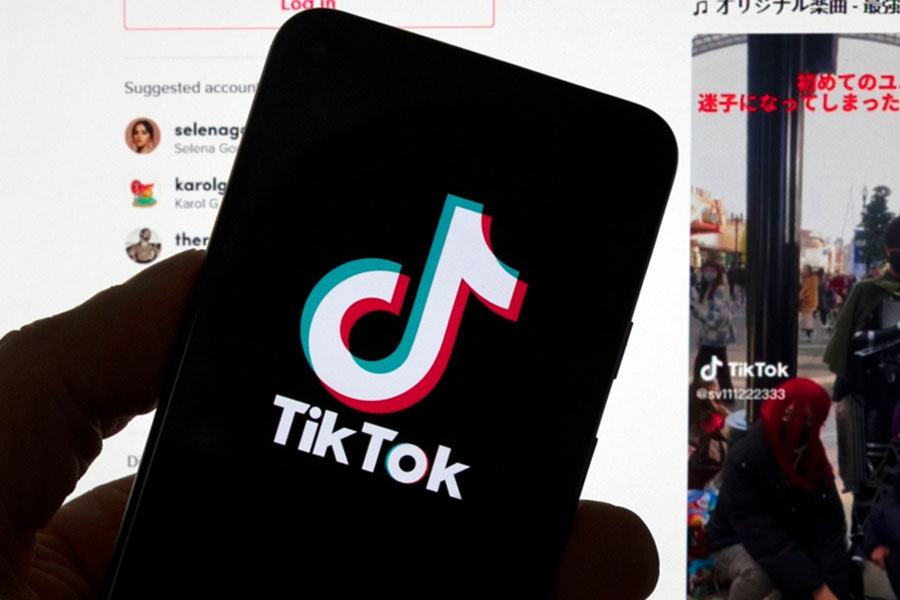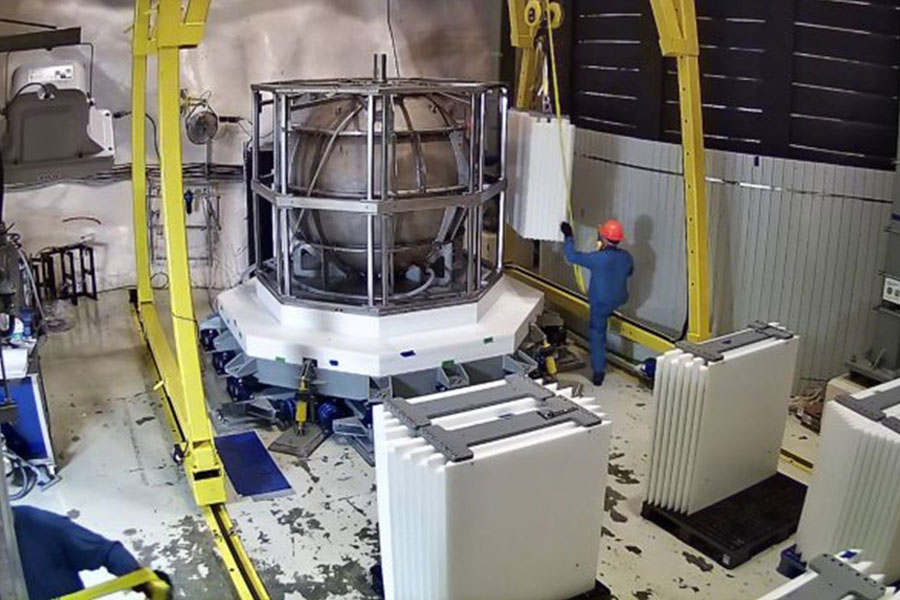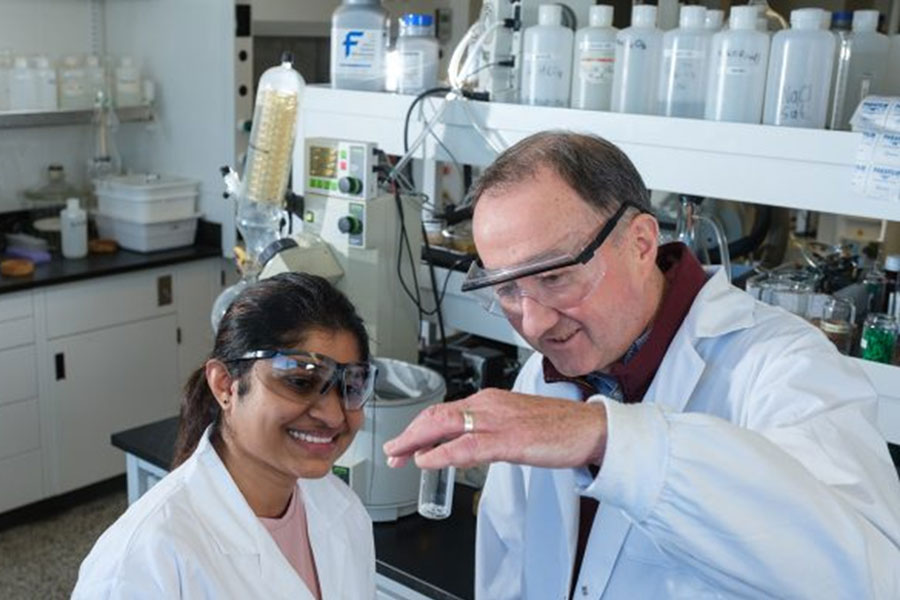
Amazon to Phase Out Plastic Puffy Pillows in North American Packages by Year-End. Michael Nagle/Bloomberg/Getty Images
In a significant step towards reducing plastic waste, Amazon announced it will stop using those small, puffy plastic pillows in its packaging. This decision aligns Amazon with other leading companies committed to cutting down on plastic usage.
Amazon revealed that it had been using a staggering 15 billion plastic pillows annually. The company has already phased out these pillows in 95% of its deliveries and plans to eliminate them entirely by the end of the year. This initiative marks Amazon's largest effort to reduce plastic packaging in North America.
Instead of plastic pillows, Amazon will now use a new paper filler made entirely from recycled materials. The company assures customers that this new paper filler provides equal, if not better, protection for their products.
This announcement comes just ahead of Prime Day, Amazon’s highly anticipated shopping event in July. The company promises that nearly all Prime Day deliveries will be free of plastic air pillows, reflecting its commitment to sustainability.
Amazon’s move isn’t entirely new; it has already stopped using plastic pillows in several other countries, including Australia, India, and various European nations. These efforts have resulted in Amazon using nearly 12% less plastic in 2023 compared to the previous year.
The issue of single-use plastic pollution remains critical. Despite increased sustainability efforts, a recent report highlighted that companies are still producing record amounts of plastic. The problem with plastic lies in its composition; it is primarily made from polymers derived from harmful fossil fuels.
Oceana, an advocacy group that has consistently criticized Amazon's plastic usage, praised the company's latest move as a "significant step forward." However, Matt Littlejohn, Oceana's senior VP of Strategic Initiatives, emphasized that Amazon should continue this momentum. He urged the company to fulfill its long-term commitment to transitioning its North American fulfillment centers away from plastic. Littlejohn also called for Amazon to push for innovations like reusable packaging to eliminate single-use packaging in all its markets.
Amazon's commitment to reducing plastic waste is part of a broader trend among major corporations aiming to be more environmentally responsible. This shift is crucial as the world grapples with the growing problem of plastic pollution. The impact of plastic waste on the environment is profound, affecting wildlife, oceans, and even human health.
By replacing plastic pillows with recycled paper filler, Amazon is taking a substantial step towards mitigating this issue. This change not only reduces the amount of plastic waste but also promotes the use of recycled materials, contributing to a more sustainable packaging solution.
Amazon's efforts are part of a larger, global movement towards sustainability. Companies worldwide are recognizing the need to reduce their environmental footprint and are implementing various strategies to achieve this goal. From eliminating single-use plastics to investing in renewable energy and sustainable materials, these efforts are essential in the fight against climate change and environmental degradation.
The elimination of plastic pillows is a noteworthy milestone in Amazon's sustainability journey. However, the company acknowledges that more work needs to be done. The transition to more sustainable packaging solutions is ongoing, and Amazon is committed to exploring new and innovative ways to reduce its environmental impact.
As consumers, we play a crucial role in this transition. By supporting companies that prioritize sustainability and making more environmentally conscious choices in our purchases, we can collectively drive demand for more sustainable products and practices.
Amazon's decision to stop using plastic pillows is a significant step in the right direction. It sets a positive example for other companies and underscores the importance of corporate responsibility in addressing environmental challenges. As the world moves towards a more sustainable future, such initiatives are vital in creating lasting change.
In short, Amazon’s elimination of plastic pillows from its packaging marks a significant step in its ongoing sustainability efforts. This change not only cuts down on plastic waste but also highlights the importance of using recycled materials for packaging. As Amazon continues to innovate and seek out new ways to lessen its environmental impact, it sets a strong precedent for other companies to follow. By supporting such initiatives and making more eco-friendly choices, we can all contribute to a cleaner, greener future.





